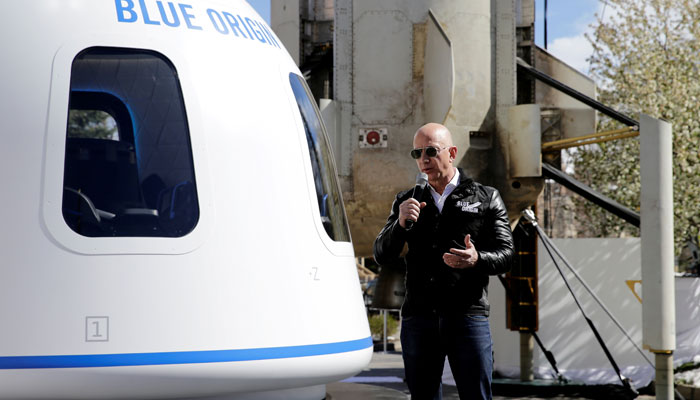Jeff Bezos's Blue Origin's return to space hits 'technical' snags
Bezos's Blue Origin had scheduled a launch on December 18 from its base near Van Horn, Texas
December 18, 2023

Blue Origin, Jeff Bezos's space company, has announced a postponement of its highly anticipated return to space, citing technical issues.
The company had scheduled a launch on December 18 from its base near Van Horn, Texas, marking its first launch since an uncrewed rocket crash in September 2022 forced the program to be put on hold.
Despite initial delays due to cold weather on the day of the launch, Blue Origin faced additional setbacks, postponing the takeoff window and eventually scrapping the mission.
The company stated, "We're scrubbing #NS24 today due to a ground system issue the team is troubleshooting. We'll provide a new launch target for this week soon."
The upcoming mission, NS-24, is critical for Blue Origin's plans to resume taking private individuals on suborbital spaceflights.
The company has faced a hiatus following the 2022 rocket crash, leading to a year-long investigation by the Federal Aviation Administration (FAA).
The FAA concluded that the crash resulted from an engine nozzle failure with higher-than-expected operating temperatures.
Blue Origin has since implemented corrective actions, including the redesign of specific engine components, and the FAA recently approved the company's application to resume flights.
While Blue Origin has faced setbacks, its competitor Virgin Galactic, founded by Richard Branson, has continued its commercial spaceflights.
Blue Origin and Virgin Galactic are rivals in the emerging space tourism sector, offering suborbital space experiences to customers.
Blue Origin emphasises its commitment to reusable rocket technology, reducing carbon emissions and environmental impact. The company has flown six crewed flights since July 2021, focusing on reusability, including the booster, capsule, engine, landing gear, and parachutes.
Blue Origin's eco-friendly approach extends to its engine, which uses liquid oxygen and hydrogen, resulting in water vapour as the only byproduct during flight, with no carbon emissions.
Despite the recent delay, Blue Origin remains a key player in the space tourism industry, with plans to launch the New Glenn heavy rocket for commercial purposes in the coming year.
The New Glenn rocket, measuring 98 meters (320 feet) in height, is designed to carry substantial payloads into low Earth orbit.









